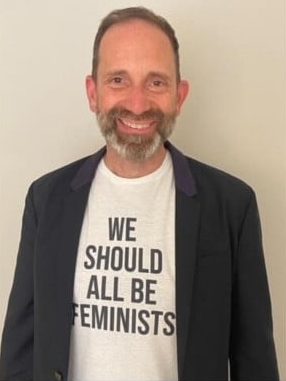WOMEN IN LEADERSHIP, the French example
Exploring cultural dynamics, legislative progress and corporate best practices in pursuit of gender equality. Despite major strides towards gender parity, women remain underrepresented in leadership roles in France. Although the country has introduced some of the most progressive gender equality legislation in Europe, cultural expectations, pressures regarding work-life balance, and entrenched stereotypes continue to influence the leadership landscape. This article examines the development of women's leadership in France, from structural obstacles and legal milestones to practical corporate examples such as Coffra group, where equality is not just an objective, but a lived reality.
The French Cultural Context
In recent decades, the role of women in leadership positions has become a central topic in discussions about gender equality, particularly in countries like France where traditional norms still influence the workplace.
Historically, the French labor market has been male-dominated, especially in high-level executive and political positions. While women in France enjoy equal access to education and have a strong presence in the workforce, they are still underrepresented in top management roles. Cultural attitudes, including long-standing gender stereotypes, often associate leadership with masculine qualities such as assertiveness and authority, which can disadvantage women who do not conform to these norms.
In addition, work-life balance remains a significant issue. French culture places a strong emphasis on family life, and despite generous parental leave policies, women are more likely than men to interrupt or adjust their careers for family responsibilities. This imbalance contributes to slower career progression for women and reinforces the perception that leadership roles are less accessible to them.
However, change is underway. Government initiatives and corporate diversity programs are increasingly promoting female leadership. Laws such as the Copé-Zimmermann law, which mandates gender quotas on corporate boards, and more recently Rixain law, have helped increase the visibility of women in decision-making positions. Moreover, public awareness campaigns and advocacy by women’s organizations continue to challenge outdated mindsets.
In conclusion, while France has taken important steps toward gender equality in leadership, cultural and structural barriers still persist. A true transformation requires not only legal and organizational reforms but also a cultural shift in how leadership and gender roles are perceived. Encouraging diverse leadership styles and supporting work-life balance for both men and women will be key to building a more inclusive future.
Key Figures
- 68% of women between 15 and 64 have a professional activity in France (reaching 82,5% between 25-49 years old) and among them, ¼ have a part-time job (vs 7% of men). In comparison, part-time jobs concern 55% of German women.
- Executive committee roles: Around 28% of executive positions in CAC 40 firms are now held by women—a rise of 2 percentage points from 2023—and up over 8 points since the Rixain Law’s introduction in 2021. As a comparison, there were 6% of women in 2008. Those current ratio are similar to UK or Germany.
Cultural & Structural Context
Despite equal access to education and employment, French women remain underrepresented at the top. The relatively high female board presence contrasts sharply with just 25% taking on executive officer roles —evidence of the enduring “glass ceiling.”
Part-time work and career interruptions due to childcare impact women disproportionately. While 68% of French women aged 15–64 are economically active, men’s labour force participation sits at 75.8%. Moreover, nearly half of women report that motherhood significantly affects their career, compared to 14% of men.
Legal & Corporate Measures
France has been at the forefront in Europe: its 2011 law required 40% female representation on boards, and the 2021 Rixain Law introduced quotas for executive roles—targeting 30% women by 2027 and 40% by 2030. Those efforts have yielded boardroom gains, though the executive suite still lags behind.
Looking Ahead
France holds a strong EU leadership position in board diversity, yet senior management representation remains low at just around a quarter of top roles. Addressing cultural workplace norms, supporting equitable work-life balance, and elevating women into senior executive pipelines are essential to closing this leadership gap.
The Coffra group cultural context : “it’s not a subject”
At the heart of our leadership philosophy lies a deep and enduring commitment to equal treatment, employee well-being, and a healthy work-life balance.
For over 40 years, the founder of our firm has always embodied and promoted these values, ensuring they are not just stated ideals, but lived realities across the organization. This consistent “tone at the top” has helped shape a company culture rooted in respect, fairness and inclusion.
We believe that a positive, balanced work environment is essential to both individual fulfillment and collective success. Our leaders remain fully engaged in upholding and advancing these principles every day, setting the standard for the entire organization.
As a consequence, we have never had to impose measures to guarantee professional equality, as this principle flows organically from the very fabric of our corporate culture.”
👉We walk the talk : see 2024 Coffra group key figures :
Today, at Coffra group : 65% of our employees are women.
- Among the 10 highest salaries, half of them are women’s.
- 2 out of 3 people from the management board are women.
- 100% of employees received a salary increase compared to the previous year.
- All women returning from maternity leave receive a salary increase.
- The average salary increase was higher for women than for men, due to a higher number of female promotions.
We remain committed to improving gender equality by closely monitoring all evaluation criteria.

Christoph Schlotthauer, President of Coffra group
